I’d been asked to pick the Top 20 songs that we might consider to be “classic punk rock.” While this “classic” terminology would have made the 20-something me cringe – “Hey, this is music of the moment, dammit! And I’m here now! F*ck classic anything!” – the adult me now explains: “Well, this was music that mattered very much then – and stands the test of time. Which is to say it still sounds fresh and brash and still makes sense today. Hence it is, uh, classic.”
If you know this stuff, this annotated listicle should ding a bell you won’t at all mind hearing again. If you don’t, discovery awaits. It’s our time-travel jaunt back to a most fertile – and some would say proudly fetid – period in rock and roll. And how can disagreement not arise?
What is punk? A sound, a DIY attitude, a back-to-basics attack with a snarl? A reaction to the staid arena rock sounds of the mid-‘70s? An injection of politics amidst a time of great discontent? An attempt to cover subjects previously untouched by rock and roll?
Many English punk journalists of the day claimed punk was dead by the time the Clash recorded Give ‘Em Enough Rope with Americans Sandy Pearlman and Murray Krugman (the Blue Oyster Cult producers, prompting snarks of “Blue Oyster Clash”), and released it in late ‘78. But England has always been obsessed with musical trends coming and going at hyper-speed. Punk hit, punk changed the shape of things to come, and punk has had second, third and fourth waves as new generations discover three chords and a burst of angst. (Perhaps you’ve heard of a lil’ band named Green Day?)
Here, we’ll primarily stick to the mid-late ‘70s groundswell. We’ll omit the precursors (The Stooges’ “I Wanna Be Your Dog,” The Velvet Underground’s “Waiting for the Man,” The New York Dolls’ “Trash” or Doctors of Madness’ “Waiting”). And we’ll bypass the followers – the more expansive post-punk classics (Magazine’s “Shot By Both Sides,” Joy Division’s “Love Will Tear Us Apart,” The Cure’s “17 Seconds” and The Fall’s “No Bulbs”) and the roughed-up, sped-up hardcore guys (Black Flag’s “TV Party,” X’s “We’re Desperate,” Gang Green’s “Alcohol”). One other self-limitation: One song per artist.
These annotated listicles are for nothing if not to stoke debate. I heartily welcome any, “F you, Jim. This was a better song!” comments and, in fact, could probably argue with myself immediately after I push the “send” button and re-order the whole batch here, adding and subtracting along the way.
(If you haven’t read Part 1 of our Top 20 Classic Punk Rock Songs, which lists #s 20-11, stop right now and click here.)
You may have heard one or two of these at cbgb, which closed its doors on October 15-16, 2006 following a set by Patti Smith.
10) “Blank Generation” by Richard Hell and the Voidoids
I remember the debate about this, whether Hell’s boast about being part of the blank generation was because he was proudly empty and apathetic or the blank meant that this generation had no name – fill in the blank. I love the blasé commentary on whatever the generation is – “I can take it or leave it each time” – and the curdled desperation mixed with cockiness in Hell’s voice.
9) “Marquee Moon” by Television
I remember calling Tom Verlaine and Richard Lloyd, the reigning guitar duel of the era, the Duane Allman and Dickey Betts of punk (I was thinking “Whipping Post”)… but that’s not right – that’s not how their guitars intertwined or meshed. But mesh they do, shifting course, building from one semi-climax to another before the inevitable explosion. Television was on the art wing of punk, using jazzy chords and counter-melodies, eschewing the balls-out aggression for something subtler. I’m still not certain what it’s “about” – the possibility of redemption, maybe? – but I dig Verlaine’s plaint: “A kiss of death/The embrace of life/Ooh, there I stand ‘neath the marquee moon/Just waiting…” Then the guitar arpeggios kick in and we ready ourselves for another wave.
8) “Psycho Killer” by Talking Heads
David Berkowitz, the Son of Sam, had gone on a killing spree in New York in ’77 and David Byrne got inside the head of, if not Berkowitz, then someone like him. Tina Weymouth provided a distinctive, funky and foreboding bass line and in his high, distinctive voice Byrne etched out this barely controlled live-wire of a character – “I’m tense and nervous and I can’t relax/I can’t seem to face up to the facts” – who was, shall we say, easily frustrated. He lamented, “I hate people when they’re not polite.”
7) “Radio, Radio” by Elvis Costello and the Attractions
Infamously played on Saturday Night Live when Costello and the Attractions filled in for the Sex Pistols (visa problems brought on by criminal history; Attractions drummer Pete Thomas has “Thanks Malc!” on his shirt a nod to the Pistols’ manager Malcom McLaren). Costello pulled a switcheroo by playing this unreleased song rather than the scheduled “Less Than Zero,” and because they hadn’t blocked it out in rehearsal, the shot that was broadcast only went to one camera. SNL producer Lorne Michaels, Costello later told me at The Rat club in Boston, hung right by that camera, shooting him the middle finger throughout the song. The song? Only the most impassioned anti-radio song of its time, written and sung by the “punk/new wave” artist American AOR radio seemed to find acceptable: “I wanna bite the hand that feeds me/I wanna bite that hand so badly/I wanna make them wish they’d never seen me.” Cathartic, anthemic, bold. So, when I asked Costello if he’d felt like he’d really damaged his career with the song – that the AOR radio that had been supportive would now cut him off – he said no: The stations that didn’t play him anyway wouldn’t and the stations that did would continue to, figuring it didn’t pertain to them. But did it? Of course it did, Costello said, flashing a sardonic smile. If Graham Parker’s “Mercury Poisoning” is the best anti-major label song of the day – and Nick Lowe’s “I Love My Label” the most sarcastic – Costello’s “Radio, Radio” is the best one-two punch at the medium musicians depended on to deliver their message.
6) “Gary Gilmore’s Eyes” by The Adverts
Perhaps nicking a chord or two from the Yardbirds “For Your Love,” The Adverts took the lyrical cues from American celebrity/pop culture. Yes, if the murders were infamous enough, the murderer gained that infamy. Adverts took on the executed Utah killer who became the subject of Norman Mailer’s The Executioner’s Song (and later writer brother Mikal Gilmore’s memoir/bio) to create a fantasy based around Gary Gilmore’s answer to whether he’d like to donate any body parts to science. His eyes, Gilmore said, would likely be the only thing usable. So, the Adverts eye transplant recipient wakes up in a hospital realizing, with shock, that “I’m looking through Gary Gilmore’s eyes!” and “Gary don’t need his eyes to see/Gary and his eyes have parted company!”
5) “We’re a Happy Family” by The Ramones
Everyone knows “Blitzkrieg Bop” – if you’ve been to a sporting event, you know it – and “Sheena Is a Punk Rocker” and “I Wanna Be Sedated,” the two Ramones “hits” if you will. But I’ll put “We’re a Happy Family” on top. Many early Ramones songs were about dysfunction and as the ultimate dysfunctional American punk band it’s turf they knew quite well. The genius of this lies in the hooks and apparent toss-off rhymes (“I’m friends with the president/I’m friends with the pope/We’re all making a fortune/Selling daddy’s dope”) and another sly reference – “We ain’t got no friends/Our troubles never end/No Christmas cards to send/Daddy likes men.” (Their label president, Sire’s Seymour Stein, was gay.) Along the merry way: Pills and chills, thorazine and refried beans.
4) “Sonic Reducer” by The Dead Boys
The first punk band I ever saw live (at the Rat club in Boston) and even though it was before their debut Young, Loud and Snotty album came out, this song blew me away. Stiv Bators – a scrawny, shirtless Iggy wannabe and damn near as good as Ig himself – snarled and yowled the bejeesus out of this one. When the record came, and I heard more of what he was singing about, it got even better. “I don’t need anyone,” bleats Stiv. “Don’t need no mom and dad/Don’t need no pretty face/Don’t need no human race/I got some news for you/Don’t even need you too.” Well, for chrissakes, what do you need Stiv? “I got my devil machine/Got my electronic dream/Sonic reducer/Ain’t no loser.” It’s sort of my-life-could-be-saved-by-rock‘n’roll without saying it that way. The negation of everything but the will to grasp fun by the throat and throttle it.
3) “Ever Fallen in Love (With Someone You Shouldn’t Have Fallen in Love With)” by The Buzzcocks
There has been no better pop-punk song written about failed romance. You wanna talk about a universal sentiment? (My soon to be ex and I sung this to each other at the top of our lungs around about 1980.) With its surging guitar lines, its rise-and-fall trajectory and its soaring chorus, from Pete Shelley and Steve Diggle, well, it’s just the ultimate happy/sad punk song. At its center, a love gone bad coupled to the urge to hang on anyway, the fear of being alone. But the truth is blared out in the chorus: “Ever fallen in love with someone?/Ever fall in love/In love with someone/You shouldn’t have fallen in love with.”
2)“I’m So Bored with the USA” by The Clash
The Clash opened the first Boston area show with this at the Harvard Square Theatre in 1979 and the place went mad. We, too, were bored with the USA. The song has to do with English kids being bored with the omnipresence of the USA – politically and culturally. Strummer was ranting “Killers in America work seven days a week!” and I take it to mean both those on TV (the ones Kojak fought) and those in real life (killing is our business and business is always open). Interesting note: The song was originally “I’m So Bored With You” – it was an anti-love/breakup song – and only took on the political resonance it had as the band worked through the changes.
1) “Anarchy in the UK” by The Sex Pistols
The most corrosive, damning, most outright confrontational – and popular – debut single in history. Popular, I mean, in England. It begins with Johnny Rotten’s rolled “Rs” in “R-r-r-right now… “ and that cackling laughter over Paul Cook’s drum roll. (America caught on more in retrospect and in smaller bunches.) I like the broad brush strokes – “Your future dream is a sharpie’s scheme” or “Your future dream is a shopping scheme” – I’m still not sure which. And I like little details of what you can do to cause just a little bit o’ anarchy, such as how to mess up a London tourist’s day: “Give a wrong time/stop a traffic line.” Rotten kept – even played up – his accent where most British singers tried to shed it.

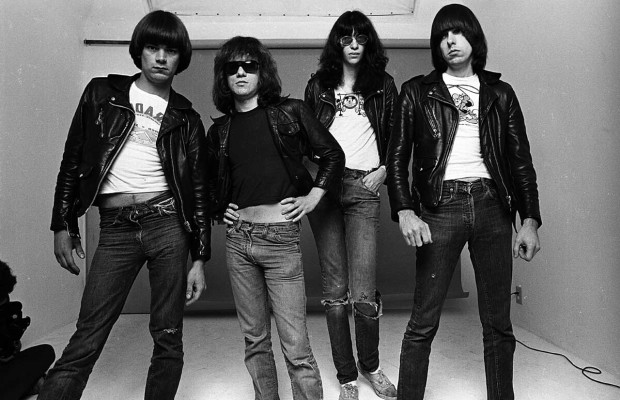
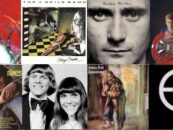
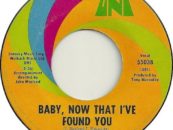
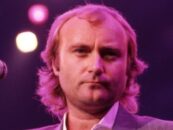
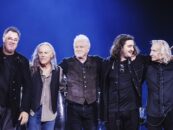

5 Comments so far
Jump into a conversationWell, you forgot the Stranglers. Nice’n sleezy, Bo more heroes.. take your pick.
Dead Kennedys !!!!!!!!!!!
‘Kennedy Girls’ by Little Roger & the Goosebumps.
I would have included God Save the Queen by the Pistols
Sex Pistols were great. Good choice there. How could they tour in 2025 without Johnny Rotten? Sid, I could understand but they aren’t the Sex Pistols without Mr Rotten(Lydon)